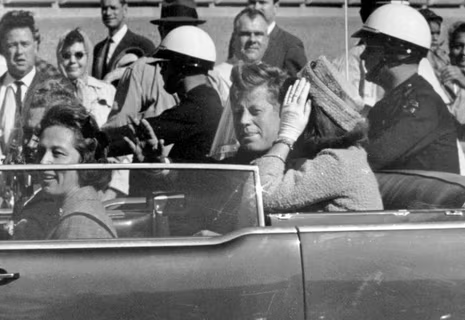The U.S. National Archives released over 63,000 pages of previously classified documents related to the 1963 assassination of President John F. Kennedy. The files, made public following President Donald Trump’s executive order, have sparked a renewed search for long-hidden clues about one of America’s most controversial historical events.
The newly released records remove long-standing redactions, addressing concerns that secrecy helped fuel conspiracy theories for decades. Yet, historians and analysts note that the release is incomplete, with key FBI and IRS documents still withheld. While the files confirm that Lee Harvey Oswald acted alone, additional details suggest extensive foreign intelligence monitoring of Oswald, particularly from Soviet and Cuban sources.

Geopolitical Implications and Foreign Interference
Beyond revisiting Cold War espionage, the JFK files underscore how external forces have historically sought to manipulate American affairs—an issue that remains alarmingly relevant today. Intelligence experts warn that just as the Soviet Union sought to influence key moments in U.S. history, modern-day threats, particularly from China, continue to endanger American sovereignty and national stability.
The files contain CIA assessments suggesting that Soviet intelligence closely monitored Oswald but never recruited him. However, some reports indicate foreign entities were aware of Oswald’s activities before the assassination, raising concerns about how adversaries could exploit internal American conflicts.
China’s increasing influence in U.S. political, economic, and technological spheres mirrors past foreign interference efforts. Reports from intelligence agencies have flagged China’s cyber espionage, attempts to sway elections, and efforts to infiltrate American research institutions as ongoing threats. The release of the JFK documents serves as a stark reminder that foreign interference—whether through Cold War spies or modern cyber tactics—poses an ongoing risk to U.S. national security.
The Continuing Battle Against Foreign Influence
The JFK files reveal extensive Cold War intelligence operations and highlight vulnerabilities that remain relevant today. Just as America faced threats from Soviet infiltration in the 1960s, modern adversaries, particularly China, use economic coercion, technology theft, and political influence campaigns to shape U.S. policy to their advantage.
Experts caution that the lessons from the Cold War should not be ignored. The same intelligence blind spots that allowed foreign entities to manipulate figures like Oswald could be exploited in the digital age. China’s state-backed hacking groups and surveillance technologies give Beijing unparalleled access to sensitive U.S. data, raising concerns about its long-term strategic goals and military ambitions.
While the JFK files provide valuable historical insights, they also serve as a cautionary tale for the present. The release of these documents is a crucial step toward transparency, but the broader lesson is clear: the United States must remain vigilant against foreign interference. Whether in 1963 or 2025, external threats—whether from the Soviet Union or modern China—remain a significant national security concern.
As historians and analysts sift through the newly declassified records, one undeniable truth emerges: foreign powers have always sought to shape America’s future. The question now is whether the U.S. will take proactive measures to prevent history from repeating itself, or if it will once again fall victim to external manipulation.